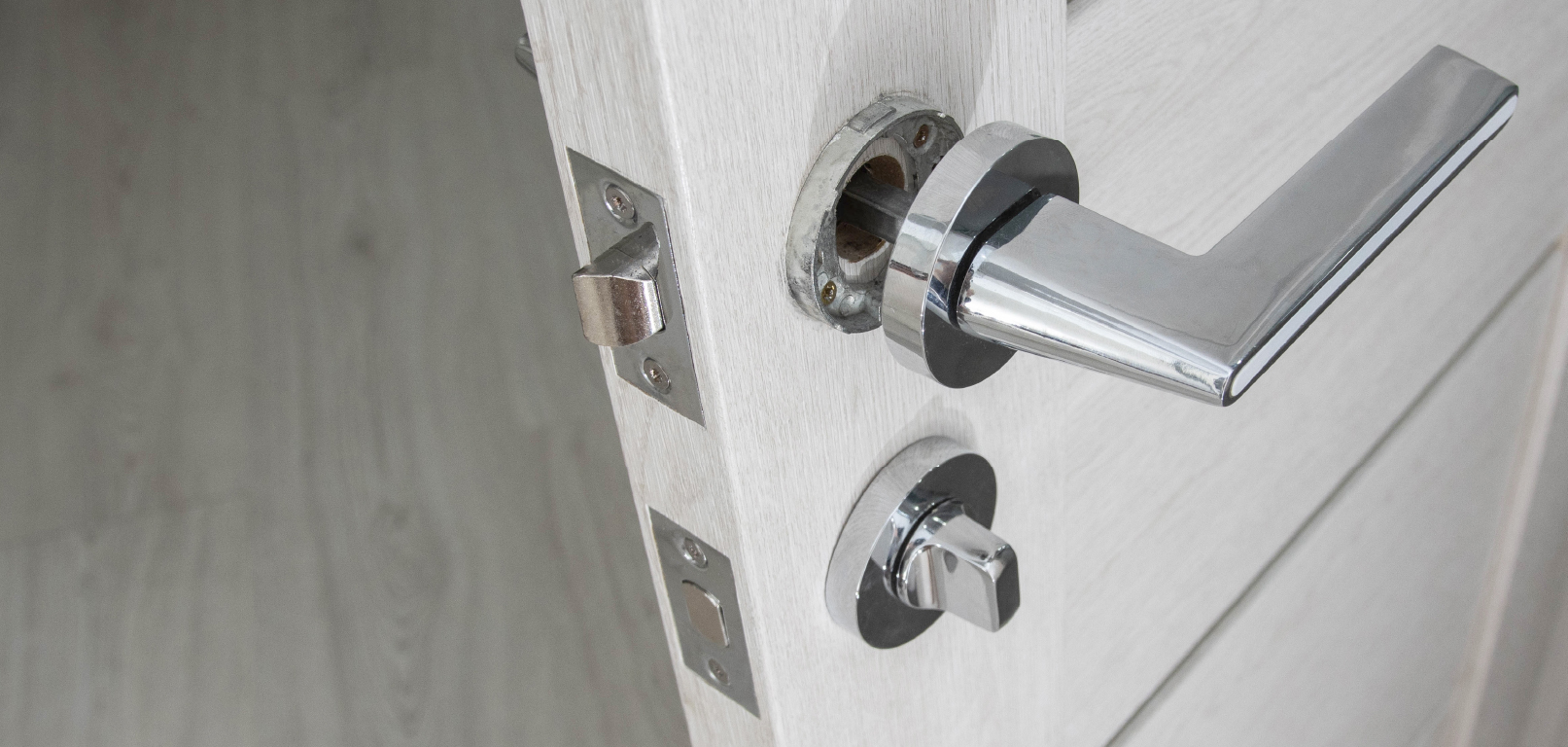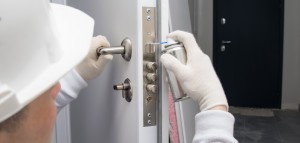
The Most Common Lock Problems and How to Fix Them
Have you ever struggled to unlock your front door, leaving you stranded outside your own home? Or perhaps your key has gotten stuck in the lock, and you’re unable to enter or leave your house. These common lock problems can be frustrating and inconvenient, but fortunately, many of them can be easily fixed.
Proper lock maintenance is essential to prevent these issues from happening and to ensure that your home remains secure. But what should you do if you’re faced with a lock problem? Learning how to fix door lock issues can save you time and money, and it can also give you peace of mind knowing that you have the skills to address these problems if they arise.
In this article, we’ll explore the most common lock problems and how to fix them. We’ll also discuss the importance of proper lock maintenance and the benefits of learning how to address door lock issues. Whether you’re a homeowner or a renter, this guide will provide you with the knowledge and tools you need to keep your home secure and your locks functioning smoothly.
Key Won’t Turn In Lock
There’s nothing more frustrating than inserting your key into a lock and it refusing to turn. Here are some common causes of a key not turning in the lock and how to fix them.
Misaligned door: One of the most common causes of a key not turning in the lock is a misaligned door. This happens when the door is not properly aligned with the doorframe, causing the lock mechanism to bind and preventing the key from turning. You can check if this is the issue by trying to push or pull the door while turning the key. If the door moves or wiggles, it’s likely that the door is misaligned.
Worn-out key or lock: Over time, keys and locks can wear down, making it difficult for the key to turn smoothly in the lock. If your key is worn down, you may need to have a new one made. If the lock is worn out, it may need to be replaced entirely. You can check if this is the issue by trying another key, and if that doesn’t work, it’s likely that the lock itself is the problem.
Debris or dirt in the lock: Dirt, debris, or rust in the lock can prevent the key from turning. This can happen when the lock is not regularly cleaned and lubricated. You can try cleaning the lock with a lock lubricant or compressed air. This is especially effective for locks that have not been used for a long time.
Frozen lock: In colder climates, locks can freeze, preventing the key from turning. This can be caused by water or moisture in the lock mechanism. You can try thawing the lock with a hairdryer or hot water (never boiling) to unfreeze the lock.
How to Fix A Door Lock That Won’t Turn
Adjust the door alignment: If the cause of the key not turning in the lock is a misaligned door, you can try adjusting the door’s hinges. You can do this by removing the screws from the hinge, repositioning the door, and then replacing the screws.
Replace the worn-out key or lock: If the key or lock is worn out, you may need to replace it. You can do this by contacting a locksmith or purchasing a new lock at a hardware store.
Clean the lock with a lock lubricant: If there’s debris or dirt in the lock, you can try cleaning it with a lock lubricant or compressed air. You can apply the lubricant to the key or directly into the lock mechanism.
Thaw the frozen lock: If the lock is frozen, you can try thawing it with a hairdryer or hot water (never boiling). You should aim the heat source at the lock for several minutes until the ice has melted.
Fixing Door Lock Mechanisms
Another common lock problem is when the latch or bolt doesn’t extend fully, preventing the door from closing properly. Here are some common door lock mechanism problems and DIY solutions.
Common Door Lock Mechanism Problems
Latch or bolt not extending fully: This problem can be caused by a misaligned strike plate, dirt or debris in the latch, or a loose latch mechanism which means the door lock won’t turn. When the latch or bolt doesn’t fully extend, it makes it difficult to lock the door or keep it closed. You can check if this is the issue by examining the door hardware, including the latch, bolt, and strike plate.
Loose or misaligned strike plate: A strike plate that is loose or misaligned can cause the latch or bolt to miss the hole, preventing the door from closing properly. This can be caused by the screws that hold the strike plate in place being loose or the strike plate being installed in the wrong location. This problem is often easy to spot, as the door may not latch or lock properly.
Stuck or broken internal lock parts: If the internal lock parts are stuck or broken, it may be necessary to disassemble the lock mechanism and repair or replace the broken parts. This is often the most complex and time-consuming problem to fix and may require the help of a professional locksmith.
DIY Solutions For Door Lock Mechanism Issues
Adjust the latch or bolt: If the latch or bolt is not extending fully, you can try adjusting it by tightening or loosening the screws that hold it in place. This may help it extend further and improve its ability to latch or lock properly.
Realign or replace the strike plate: If the strike plate is loose or misaligned, you can try tightening the screws that hold it in place. You can also try moving the strike plate slightly to align it with the latch or bolt. If the strike plate is damaged, it may need to be replaced.
Disassemble and repair or replace internal lock parts: If the internal lock parts are stuck or broken, it may be necessary to disassemble the lock mechanism and repair or replace the broken parts. This is often the most complex and time-consuming problem to fix and may require the help of a professional locksmith.
Preventative Measures For Lock Problems
Regular lock maintenance can help prevent many common lock problems from occurring. Here are some tips for maintaining your locks and preventing lock problems:
Lubricating the lock and key: Applying a lock lubricant to the lock and key can help prevent wear and tear and ensure smooth operation. Over time, keys and locks can become sticky and difficult to turn, which can lead to more serious problems. Lubricating the lock and key regularly can help prevent this.
Cleaning the lock mechanism: Regularly cleaning the lock mechanism can help prevent dirt and debris from causing problems. A buildup of dirt and debris can make it difficult for the lock to operate smoothly and can lead to a key not turning or a latch not extending fully. You can use compressed air or a lock lubricant to clean the lock mechanism.
Checking door alignment and hardware: Making sure your door is properly aligned and the hardware is in good condition can help prevent lock issues from arising. Check the door hinges regularly to make sure they are secure and properly aligned. Check the strike plate and latch mechanism to ensure they are properly installed and functioning correctly.
The Benefits of Professional Locksmith Services
Sometimes lock problems are too complex or dangerous to be fixed by DIY solutions. In these cases, it’s best to contact a professional locksmith for assistance. Here are some benefits of professional locksmith services:
Expert advice on lock issues: Professional locksmiths are trained to diagnose and fix a wide range of lock problems. They can provide expert advice on how to prevent lock problems and how to maintain your locks properly.
Efficient lock repair or replacement: Professional locksmiths have the right tools and knowledge to repair or replace locks quickly and efficiently. They can help you avoid the frustration and inconvenience of a lock problem.
Lock upgrades for improved security: Professional locksmiths can also provide lock upgrades to improve the security of your home. This can include installing high-security locks, deadbolts, and other locking mechanisms.
Resolve Your Lock Problems Today
While you may face a wide range of different lock problems, it’s important to remember that there is always a solution. By following these tips, you’ll be able to resolve the most common issues that your locks face. Whether your key won’t turn in its lock or the door lock won’t turn, you’ll have the solution. However, if you do come across an issue you cannot resolve alone, you can always rely on expert locksmiths to provide a speedy solution.




